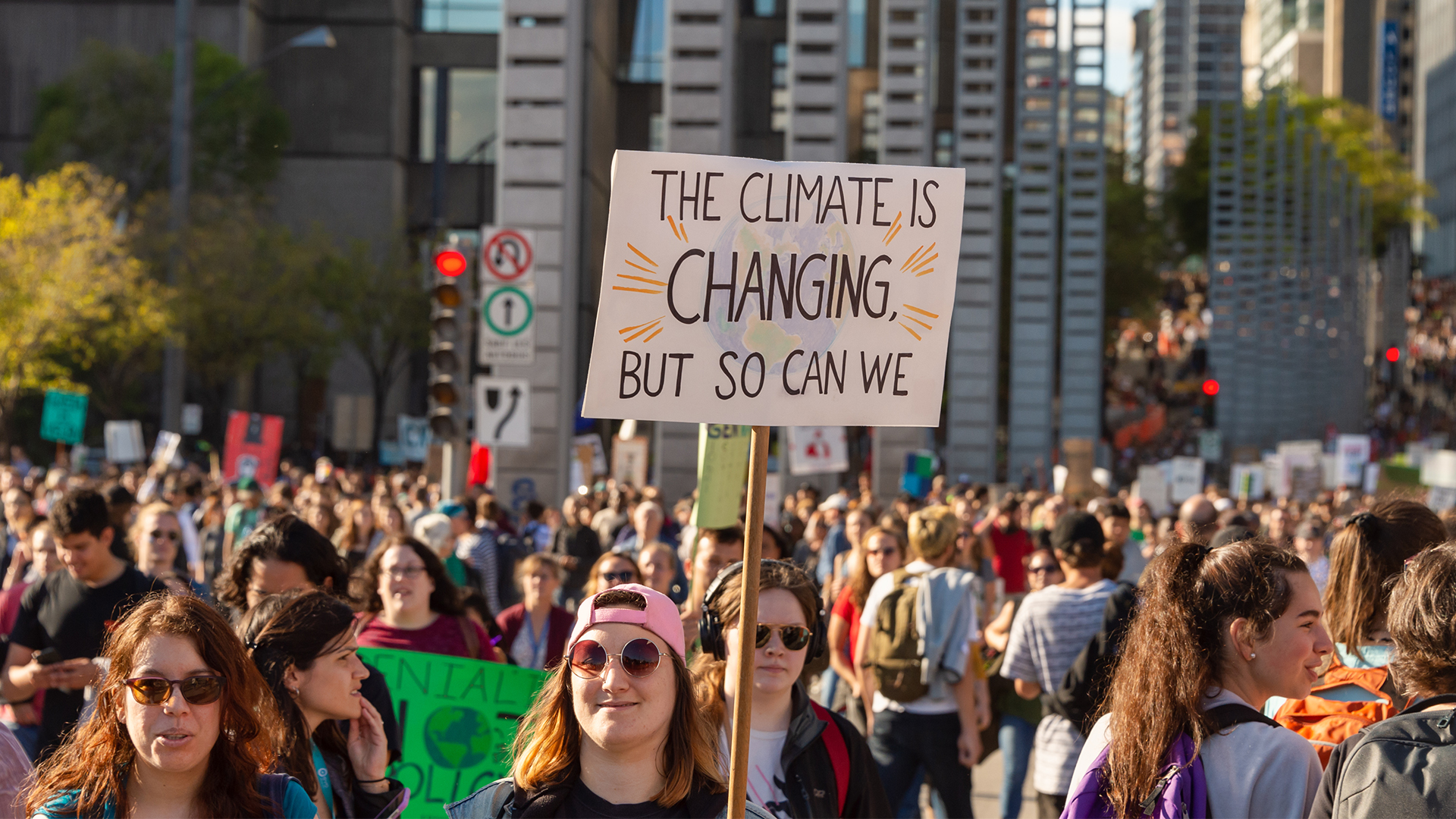
Canadians are divided politically on what they regard as the nation’s most pressing issues. A clear example is attitudes towards the environment. Polling shows that the strongest proponents for climate change action are Canadians on the left. A Leger poll conducted during the 2021 federal election campaign found that Conservative Party of Canada supporters consider climate change 50 per cent less important than Liberal or NDP supporters. Canadians with conservative values are somewhat ambivalent about and, at worst, hostile to more government regulations and laws, which they see as thinly veiled attempts to centralize decision-making and increase government interference in their lives.
At first glance, conservative positions on the environment and climate change are puzzling, since their values are very much aligned with overall environmental conservation. Edmund Burke, the father of modern conservatism, stated that society is a “partnership . . . between those who are living, those who are dead, and those who are to be born.” What can be done to bring conservatives into the discussion and development of meaningful policies they can support?
It is certainly not environmental conservation, per se, that separates the two political divides. Instead, it is the method of achieving it. Progressives seek prescriptive centralized big government, using a mix of regulations, penalties, laws, taxation and spending to achieve their objectives. And given the public interest in environmental issues, particularly climate change, progressives see the opportunity to reshape society further by bundling other causes onto the environment. While these messages reflexively push conservatives away, they ought not to, according to the late British conservative philosopher, Roger Scruton.
“The cause of the environment is not, in itself, a left-wing cause at all,” Scruton wrote. “It is not about ‘liberating’ or empowering the victim, but about safeguarding resources. It is not about ‘progress’ or ‘equality’ but about conservation and equilibrium. Its following may be young and dishevelled; but that is largely because people in suits have failed to realize where their real interests, and their real values, lie.”
Conservatives are sceptical of top down, central, one-size-fits-all regulations for managing society. They prioritize personal responsibility, smaller government, and local or decentralized decision-making as an alternative. While they are often quick to criticize proposed environmental policies, conservatives don’t often offer their own. If Canada is to seriously tackle environmental problems, conservative and progressive elements within Canadian society will need to forge a policy compromise – not to water down essential environmental objectives, but to implement policies that will achieve stated goals.
What might an environmental policy framework that includes conservative values look like? Presented below are five principles based on Jonathan Adler’s paper “Conservative Principles for Environmental Reform,” which could shape conservative environmental policies.
Do no harm
Such a principle would seem obvious, but some programs harm rather than help the environment. For instance, in 2018 Canadian governments subsidized catch-enhancing projects to the fishing sector totalling US$194 million, even though stocks on both coasts have been depleted. Government incentives and subsidies going to biofuel development are also questionable given biofuel’s overall effect on CO2, pollution emissions, and agricultural and forestry lands. Advocating “do no harm” could reduce negative consequences due to bad policy and also significantly blunt government growth.
Green through growth
Competitive markets require businesses to become more efficient and productive to remain profitable, resulting in more and better goods, which are produced using fewer natural resources. Market competition, for example, reduced wood waste in North American sawmills from 55 per cent in the 1930s to 0.8 per cent in 2012. The industry’s next steps are to increase wood re-use and improve recovery methods for recycling. There are many examples of the profit motive spurring innovation that leads to greater output with fewer inputs.
Market economies also create wealth, and as shown in this graph, governments and individuals with greater wealth directly correlate with greater concern for the environment. Also, on an individual level, 7 per cent of Canadians donate to environmental causes, but 10 per cent of donors with incomes over $1 million give to environmental causes.
The Yale Center for Environmental Law and Policy, in its 2020 annual report on sustainability, shows a strong positive relationship between greater national wealth and better environmental performance. Intuitively, this makes sense. Wealthier nations have more disposable income to invest in environmental programs. Moreover, as countries become wealthier, they use more efficient and less polluting resources.
Promote and protect private property
Private ownership of land and natural resources, along with a market economy, are often pointed to as the perpetrators of resource depletion and environmental degradation. In many cases this is incorrect. It is often when there is no cost and open access to a resource, so individuals can use it as much as they like, that there is environmental depletion. Businesses do not have to pay for this free resource, creating a negative environmental cost. However, private ownership of land and its resources internalizes the costs.
Eastern European countries during the Soviet period in the 1980s lacked freedom, private property rights and a free market, and they were striking examples of failed environmental stewardship. Those countries had worse pollution statistics and adverse health outcomes than did Western nations. In the 1980s, eastern European nations accounted for 12 per cent of total European national product, but they produced 53 per cent of the continent’s particulate air pollution and 33 per cent of its gaseous air pollution. Eastern bloc countries also used approximately 75 per cent more energy for every dollar of GDP they produced than did the United States.
On a micro level, regulations dealing with endangered species on private lands can create perverse incentives that increase the extinction risk. Governing regulations can be so oppressive that they encourage property owners to prematurely destroy endangered species habitat on their property, so they do not have to deal with punitive regulatory costs. Environmental economist Shawn Regan describes the misaligned rules as follows: “If I have a rare metal on my property, its value goes up, but if a rare bird occupies the land, its value disappears.” According to Canada’s Species at Risk Act, only 5 per cent of the species listed as endangered have recovered sufficiently to be taken off the list. If environmental benefits are priced, then incentives can be created for property owners to conserve.
Make the polluter pay
The Canadian Environmental Protection Act specifically refers to the polluter pay principle in its preamble. The idea is closely aligned with the conservative notion of being responsible for one’s actions. While conceptually the principle has wide support, the problem is whether it is used, and if so, is it used correctly?
For instance, an Ontario Court of Appeal refused to overturn a lower court decision ruling that the City of Kawartha Lakes had to pay for cleanup costs on city property for an oil spill that occurred on private property outside the city. The court confirmed the decision that environmental protection trumps the polluter pay principle, even if the remediation costs are borne by an innocent party. Taxes and levies are often applied uniformly across companies and/or consumers to fund cleanup, disposal or other such objectives, although not all the companies and/or consumers may be contributing to the problem. Such policies, while easy to implement, do not fairly apply the polluter pay principle.
The conservative principle of taking personal responsibility is also consistent with taxing users on the pollution they create. Taxing the common use of assets imposes a cost on businesses. However, implementing a pollution tax efficiently and fairly does pose some problems.
Since conservatives oppose greater taxation, it is essential for new environmental taxes to be offset by an equal reduction in taxes collected on income. However, taxes are prone to political interference. For instance, British Columbia’s well-designed carbon tax was revenue neutral for nine years, until 2017, when the NDP government announced it would not offset carbon tax increases with tax reductions elsewhere. The federal Liberal carbon tax also promised neutrality, although in its first year it returned $250 million less to Ontario than it collected. Ottawa also applied HST to the carbon tax, raising an extra $243 million, which will not be rebated. The unrelenting push for greater government revenue makes conservatives skeptical of such environmental taxes.
Decentralize decision-making
While some environmental issues, for instance, climate change and ocean fishing, are international, many concerns, such as bird habitat, mill pollution, and water and air quality, are typically local. Using local knowledge, allowing businesses to examine different solutions, and enabling the affected parties to choose acceptable solutions themselves are better options than trying to fit the problem into a rigid federal regulatory structure. For example, contaminated site remediation can be costly and complex. Such brownfield properties often remain abandoned or vacant.
Municipalities and businesses could explore a suitable and cost-effective use for each site. Remediation that is carried out would be tied to the site’s proposed use. Once remediation is complete, the landowner is freed from further remediation costs, but the site would be used only for the agreed purpose.
A framework for developing environmental policies that are consistent with conservative values is possible. Growth and market capitalism are consistent with environmental stewardship. In many instances, it is possible to care for the environment without expanding government and increasing burdensome regulations. Free markets, private property rights, incentives and local decision-making are all important elements in designing such policies. Conservative-minded politicians and policy-makers in Canada must develop and be advocates for policies that can conserve and reduce government interference in private property rights, and promote local solutions that can be voluntarily negotiated.









